#and are vastly different characters
Text
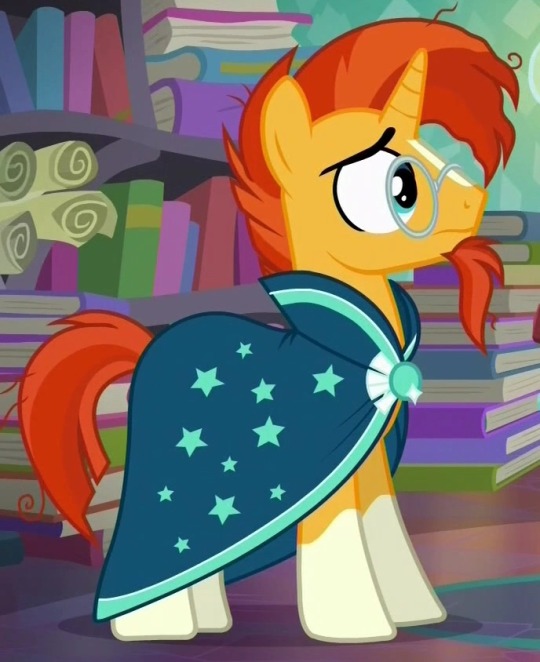
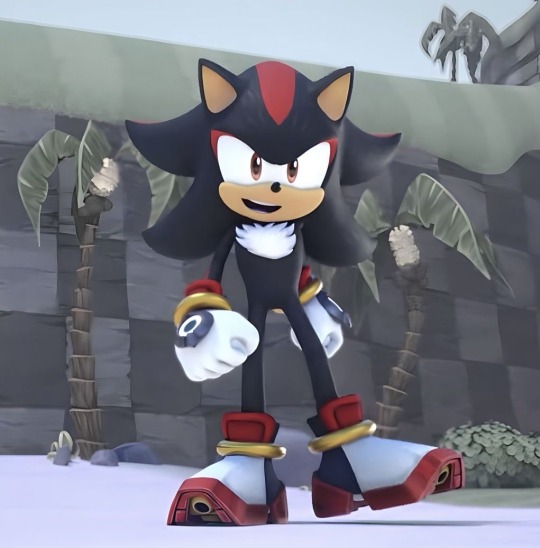
watching mlp for the first time and finding out that they share the same voice actor is probably the funniest thing to happen to me
#finding out that vastly different characters share the same va will never cease to humor me#sonic#sonic the hedgehog#shadow the hedgehog#sonic prime#mlp#mlp:fim#my little pony#my little pony: friendship is magic#mlp sunburst
584 notes
·
View notes
Text
I will never not laugh at Big's incredibly hurt face when he's being accused of homophobia by Porsche even tho he, himself. is gay LMAO
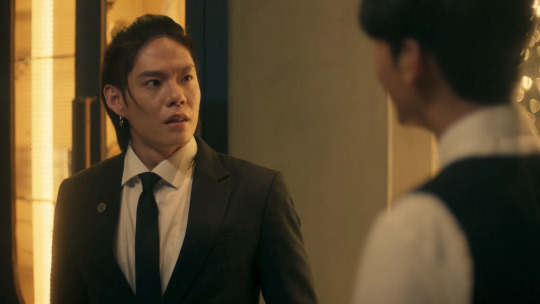
they're working on totally different wavelengths like Porsche still assumed Kinn and everyone else was straight 😭😭😭😭 and Big is like. Huh??????
2K notes
·
View notes
Text
my favorite part of fandom is that specific moment when we all collectively go, "Oh yes, now blorbo needs to open a coffee shop" followed by the infamous "and they should fall in love w shitto while they're at it"
#i love coffee shops AUs and it's funny to see the same idea w vastly different characters#won't even mention how bizarre it is for some characters to open/ work at a coffee shop#this is universal. gay kpop idols own a coffee shop. loki and mobius own a coffee shop. clark kent owns and works at a coffee shop etc etc#EVEN F1 DRIVERS OWN FUCKING COFFEE SHOPS#I'm just rambling please don't mind me#f1#batman#batfam#lokius#superbat#batjokes#kpop#stray kids#tomorrow x together#one direction#formula 1#sylki#beastars#birdflash#timkon#bts#taekook#minsung#klance#zukka#boku no hero academia#zosan#zoro x sanji#supernatural#it just goes to show that gay people are relentless
163 notes
·
View notes
Text
my new kinsey scale
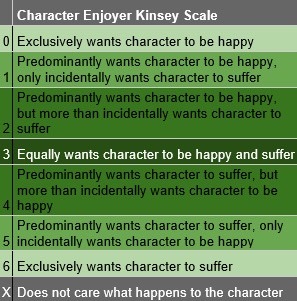
#inspired by watching spn alongside arik. character enjoyers in vastly different ways#i’m a 5 for just abt every character i love <3#sometimes even a six…maybe a 4 occasionally. u know how it is…#txt
196 notes
·
View notes
Text
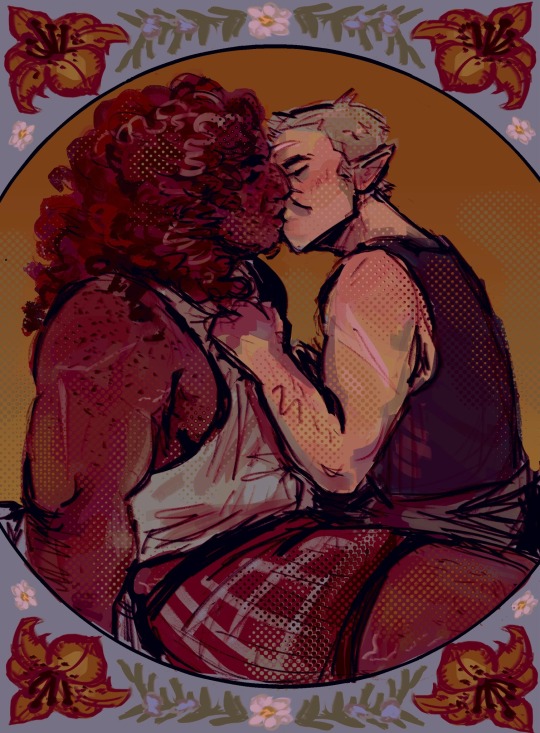
my dyke ocs kissin for the end of lesbian visibility week, i roughly used the butch flag colors if you can tell :))) i ❤️ flower symbolism
#oc#original character#lesbian visibility week#butch lesbian#butch4butch#original characters#clip studio paint#commissions open#side tit is there for the real fags#(me)#this is for lesbians to enjoy enjoy lesbians#technically a redraw but whooooo cares it’s so vastly different anyway#anyway#butch art
96 notes
·
View notes
Text

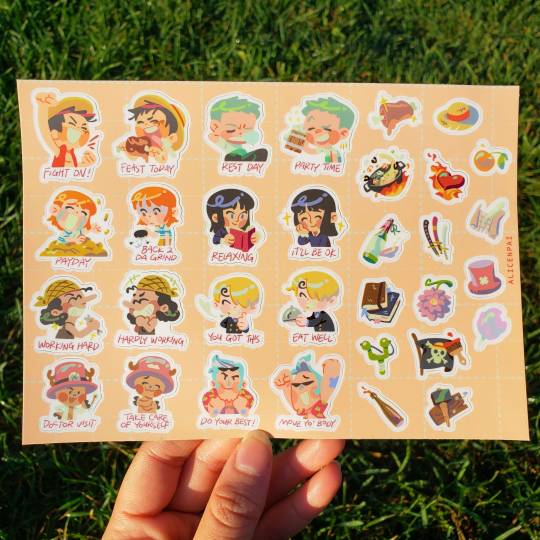
COME ON BOARD AND BRING ALONG ALL YOUR HOPES AND DREAMS...! stickers here in my shop until oct 17 🏴☠️
#one piece#monkey d. luffy#roronoa zoro#nami#nico robin#usopp#tony tony chopper#franky one piece#at the time i made this in april. i think i was only at water 7#im at marineford rn? just finishing up impel down. hoo boy what an arc with fantastic side characters#me and my sibling have been watching together for like 1.5-2 years now?#you might think thats slow but. we watch a lot of other stuff. not just 1 show. haha#one piece is incredible like. i keep wondering. if i had gotten into this series at the same time as fma (my no. 1 favourite shounen manga)#- i think i might even like op more than fma. wild to think#im very happy these did so well at anime north this summer......#im scared to delve into fandoms so vastly different than the sort of indie/video game/niche kind of fandoms people followed me for haha.
183 notes
·
View notes
Text
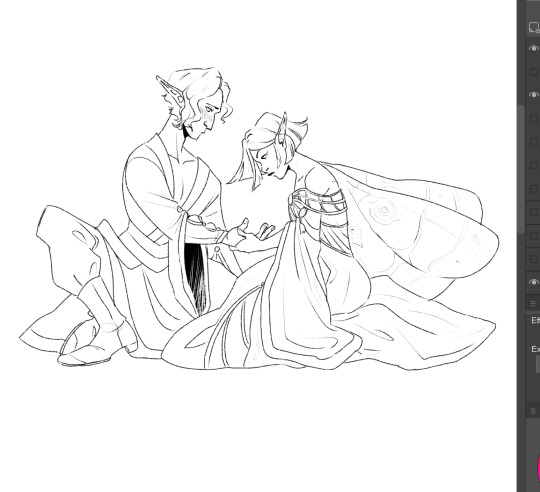
getting a canonical pride & prejudice 2005 hand flex moment but instead of hob and rue it’s between a severely awkward touch-starved asexual he/they and an undercover warlock patron carrying the soul of an entire extinct court she/they kinda got me feeling things ngl
#a court of fey and flowers#dimension 20#andhera#binx choppley#acofaf#d20#marshmallsydraws#I CANT BELIEVE I PREDICTED IT I JUST GOT THE CHARACTERS WRONG#but yeah this....this got me feeling some type of way dont look at me#like do i think they're endgame??? NO clue they both have such vastly different goals & agendas#but also....like....i mean.....yknow......
2K notes
·
View notes
Note
Jumping on the Jack R outrage bandwagon
What also gets me about Jack getting another R card, is this also means Savanaclaw is the only dorm now to not have a Halloween SSR card. And this is just my prediction, but given the way that Jack's card is the only one that doesn't have ribbons or strings attached to the side, he's probably going to be pretty important to the story, aka with the puppet theme and likely people being controlled, it feels like he's not going to be controlled and making him Very Important for the story line
Anyways Justice for Jack
So far, I noticed that ALL the halloween events had at least one dorm leader SSR; Vil for SM, Riddle for EH, Malleus, Idia and Azul for GM and now Kalim for PL; Which makes it highly likely that Leona will be 2024's halloween SSR! It will happen, it's only a matter of time (that rules out Jack and Ruggie as possible halloween SSRs for next year tho 💔)
NO LISTEN I'VE BEEN THINKING THE SAME. ABOUT HOW JACK'S OUTFIT SEEMS DIFFERENT THAN THE OTHERS
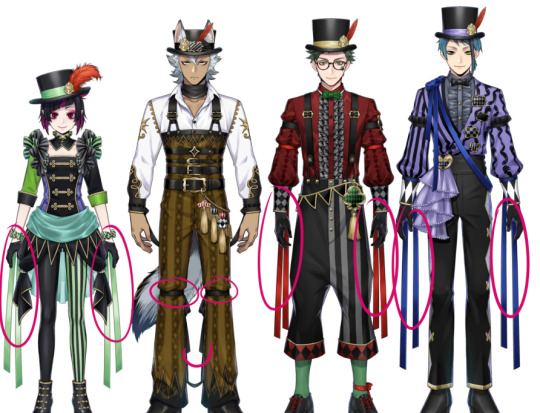
Out of the R cards, Lilia, Trey and Jade all have loose ribbons on their sides. Now look at Jack; his ribbons aren't loose, but rather...
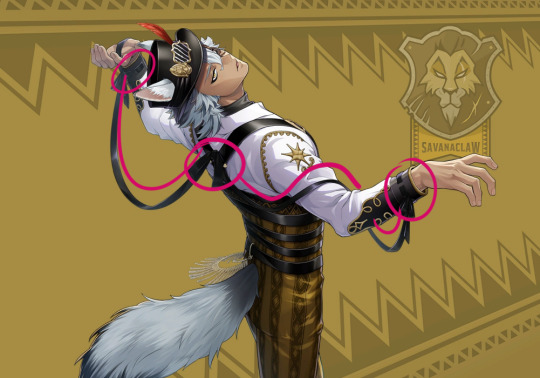
...They are tied to his cuffs and connected to his back. Why only he has ribbons tied that way?? And something that particularly makes me uneasy is why he has ribbons tied to his knees. Doesn't that seem oddly restricting? Especially for THE most athletic and physically strong character?
Notice that it's a single ribbon, tying his knees together. All of the ribbons on his cuffs and knees seem to be of enough length to make him move comfortably at least, but wouldn't that prove to be a hassle for his movements in case of an emergency? He can't properly run with his legs tied like that. He can't properly fight using fists with his arms tied like that.
Considering the boys did not choose their outfits (it magically appears on their bodies once they enter inside playful land) it's almost as if... That was purely intentional on Fellow's part. As if he's wary of Jack and is very much conscious about how he could use his raw strength to break out, and the ribbons tying up his limbs is to ensure that he will stay contained and restricted like a dog on a leash.
Nothing is confirmed yet but I sure hope those ribbons will have a bigger role in the plot and aren't there just for aesthetics 😭 If those ribbons really will be like strings that holds a puppet together, I can imagine that Lilia's, Trey's and Jade's ribbons will be holding them up like they're puppets and Jack's ribbons will be for restricting him.
Ok as much as I'd love for Jack to be important in the story I don't think that's going to happen since he's merely a R card AGAIN and much less will be of more importance than the others 😭 Whatever predicament happens to Jack will likely happen to the R characters (and SRs?) as well, like being restricted or controlled. The SSRs are supposed to be the protagonists of the story after all. BUT I still hope there's a small scene that shows his ribbons restricting him and proves that the placement of HIS ribbons especially aren't just for show 😳😳😳
#twisted wonderland#playful land#twst event#jack howl#lilia vanrouge#jade leech#trey clover#fellow honest#you know smth that seems different in the outfits of this event#is that FINALLY everyone has a single individual outfit for themselves only and not an outfit themed after a dorm#first halloween event every dorm wears the same thing#and glomas the outfits are slightly different but still has somewhat the same motiff for every dorm#im LOVING that in this event everyone has individuality and outfits that fits their characters and not their dorms#like ace and trey and cater look so vastly different its so refreshing#which makes me hope that every character R and SR will at least have their own moment to shine in this event#answered ask
120 notes
·
View notes
Note
It feels like such an ace moment that bnf!Crowley is like "if I have a beard at the con then no one will give me shit for being ace" while Aziraphale is mentally running through his 50-year-old-gay-man list of slurs that he's been called, those he's felt comfortable reclaiming and those he really hasn't, maybe all the people who refused to shake his hand during his 20's... Like Aziraphale is there as Big Rugged Aziraphale Armour and he knows what that means and is taking it seriously even as his heart is doing loop-de-loops at being at Crowley's side, and if they were out for lunch in the middle of nowhere and someone called them a slur, who would actually be the first to jump into fight mode and who would be the one going "just ignore them and walk away"? Like they clearly both have trauma but they're clearly different trauma (just like in the show!). -- Man. AUs that take a show that's a queer metaphor and turn it into being directly about queerness are always so fascinating.
this is way better than i ever couldve planned oml 😭
#downside of writing a character who is a vastly different age to you is that i didnt even THINK abt everything aziraphale wouldve been thru#in 54 years of gayness#being flaming in the 90s and shit like that#but fuck this just WORKS#ask a rat#bnf au
110 notes
·
View notes
Text
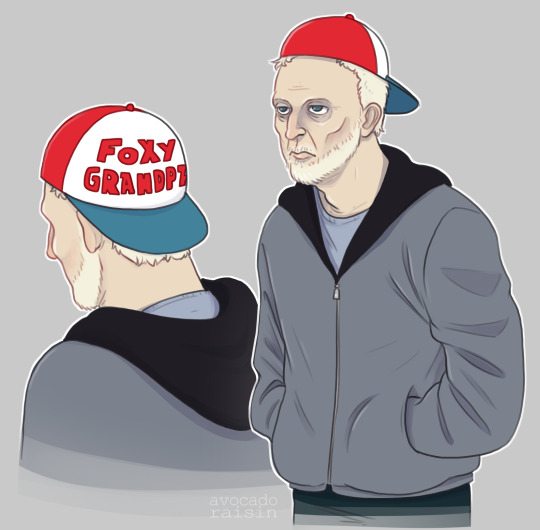
had to have been done before but that isnt stopping me
#every old character gets the Foxy Grandpa hat eventually#also happy to continue my job of vastly misrepresenting the media i draw fanart of and confusing my non-fan followers#like yeah of course all of these films are slice of life comedies did yall see something different#saw#john kramer#jigsaw#saw franchise#spongebob#drawing
116 notes
·
View notes
Text
re: elf servants
I think generally there are servants in royal/noble households simply for practical reasons and they generally fall into 2 categories: specialised servants (think, stewards and messengers and scribes, masters of horses or kennels, that kind of thing) and servants who help with the upkeep of the household (cleaning, repairs, cooking and also the apprentices and assistants of specialised servants)
specialised servants are probably quite prestigious roles and fields of industry in their own right, and they are considered full members of a household, and probably are closely linked to the person they serve - it's as much a political and social statement to be Finwe's chief scribe as it is an economic one
but the second category are more associated with the house than the family living in it - for example, Finwe's palace in Tirion would function both as a home and a diplomatic and administrative centre, it would be impossible for him to rule and keep up with chores himself. But Fingolfin's personal home would probably not have any full-time servants - when there more people than usual to feed or house then professionals might be hired, but for the most part I imagine the day to day is done by the family (made possible by the fact elves sleep and eat less than humans)
IRL domestic service (at least in the 18th century) often functioned as a kind of prep stage for adult life (for women in particular, but gender is probably not as big a factor for elves) and I could definitely see this in Valinor - domestic servants being 80% elves between 50-100 who haven't chosen an apprenticeship or similar in another field who are earning extra money to set up their own households, getting experience outside of the family, meeting others in their own ae cohort, learning independence etc. It's a job that comes with the offer of room and board + the wages a king/prince/lord can provide. Not glamorous, but not terrible.
The other 20% is made up of professional servants - experienced elves who are genuinely like the work and are contracted workers as much as a builder or gardener might be. Some of them might be independent and others part of businesses set up by other elves who are really into cooking/cleaning etc.
In Beleriand the situation (for the exiles at least) is probably very different, though I think there would be attempts to adapt the system - but there aren't as many households that need servants and there aren't as many young elves.
#i confess i very much enjoy making ocs who are bg characters and servants are perfect for this#made my own post because i could not fit this in the tags LMAO#also the amount of labour needed to run a pre industrial household is HUGE#but elves generally get around this by having a population that is 90% adult and having magic#and having the time for anyone to become vastly skilled in their field in a lifetime#so things like food and clothing production is almost always communal and in the hands of elves who are REALLY into that specific area#the magic being relevant here because elf magic preserves - elven clothes won't wear out elf food doesn't go off etc#(or at least not as easily as human food/clothes)#i prefer to write elf societies that only visually mirror human ones - to an outsider it looks like a hierarchy of lord and servants#but the dynamic is very different#but that is just my preference#silm meta#not really a meta i just need to be able to find this post on my blog lol#long post#this is one of my fave topics hence the rambling
120 notes
·
View notes
Text
To Those Left Behind: Answering the anger of the survivors in My Hero Academia vs. Hosoda Mamoru’s Belle
Yes, it's another "What [X] Did Right That BNHA Is Doing Wrong" post. I'm not trying to make this a series, but what's a girl to do when everywhere she looks, she sees other stories that are handling elements of BNHA's endgame with far more grace and rigor? Hit the jump.
The Formula: The Hero vs. The Critic
A bugbear of mine in superhero fiction is when The Hero is presented with someone critiquing their heroism who immediately revokes their objections when The Hero saves them in turn. The basic shape of the story is as follows:
The Hero is confronted by The Critic in some situation that lacks immediate danger. The Critic has issues with The Hero’s day-saving activities. Perhaps in some earlier battle between The Hero and Some Villain, The Critic suffered property damage; they might also be an innocent bystander (or relative thereof) who was harmed in the fight. They might simply be a stickler for laws The Hero may or may not be acting in accordance with. Perhaps they even take issue with the suffering Heroes themselves endure, though in the case of this specific storyline, they’re more likely to be thinking of a different Hero in their lives than the one they’re actually confronting.[1]
The Critic presents an obstacle to the combat-focused method that is superhero fiction’s default mode of conflict resolution. They may endanger The Hero’s activities by threatening legal/institutional reprisal, or they may just be there to make The Hero feel bad about themselves. The Critic may be framed very sympathetically by the story, or they might simply be a buzzkill, but regardless of the degree of empathy the story chooses to afford them, they are a hurdle to be overcome.
The Hero is unable to cogently argue for their own position because superhero narratives are not about offering real life justifications for vigilantism. Rather, because the default mode of conflict resolution in a superhero story is being a superhero, the story circumvents The Critic’s objections by placing them in danger, offering The Hero a chance to save them.
Having thus been personally saved by The Hero (or, to put it more cynically, having personally benefitted from what The Hero does), The Critic promptly gets over all of their objections, even the ones that seemed to have been founded in well-considered ethical frameworks rather than traumatic experiences.
1: “Hero’s civilian loved one has a problem with their heroics” is a whole different story! Typically that story is used to mine for drama in The Hero’s personal life; if it’s not there to serve as an ongoing relationship stressor, it’s more likely that the civilian loved one will get over their objections as a result of seeing The Hero save an uninvolved innocent than because they are themselves directly saved by The Hero.
This, to me, is simple sophistry. “You say you don’t approve of what my saving people costs, but what if I saved you, huh? Then would you like me?” is a cheap gotcha that relies on The Critic being incapable of separating rational ethics from their direct experience. That’s not to say that ethics shouldn’t have a foundation in lived experience, of course, but one also can’t de facto rely on one’s emotional responses to dangerous, traumatic situations to guide e.g. public policy. Emotional responses are not inherently fair; they can be myopic or prejudicial. For the same reasons of impaired partiality that guide judicial recusal or juror screening, a single personal experience with being saved by a superhero cannot be assumed to write superheroes a blank check for everything they do while in costume.
And yeah, I realize that I’m being ungenerous here. I assume that the storyline above is meant to be read as The Critic lacking sufficient empathy for those The Hero saves and coming to a greater understanding of the terror and desperate need experienced by bystanders when Some Villain attacks. I can understand the general thrust of things!
Still, that story structure does not require The Hero to grow—all they have to do is endure and keep doing what they’ve been doing all along. All the growth is experienced by The Critic as they’re led to empathize, not with The Hero, but rather with the other underdeveloped side characters—or more likely bit characters!—The Hero saves. And even that empathy is usually less spotlighted than The Critic’s gratitude, which can feel especially distasteful when it feels like the story is emphasizing how noble The Hero is for saving this jackass Critic that’s been giving them so many problems, and isn’t The Critic just so thankful now that they’ve been humbled and shown the error of their ways?
It’s not a story that, to my eye, usefully challenges The Hero or The Critic, merely a self-serving narrative that assures both The Hero and the audience that The Hero Was Right All Along. I can see the appeal of the “No, you move,” flat arc as much as the next person, but that story just feels like, if you’ll forgive my crudity, setting The Hero up for easily-earned asspats.
Let’s look at some different permutations of the formula as it appears in My Hero Academia.
The Critics of My Hero Academia
Over the course of its 400+ chapters, My Hero Academia portrays a lot of criticism of the state-sponsored Pro Hero industry the story depicts. There are people who criticize the laws that form the basis of professional heroics, people who think Heroes work too hard, people who think Heroes don’t work hard enough, people who think Heroes are too commercial, people who think Heroes are a shiny façade over a corrupt and ugly reality, people whose way of life has been ruined by the rise of Heroes, and on and on.
Unfailingly (and often to its considerable detriment), the flawed but valiant Heroes of My Hero Academia continue to uphold their system and their activities as valuable, admirable, and—most crucially—the only reasonable solution to the problems created by the superpowers wielded by the setting’s inhabitants. Any Critics they face are destined to be proven wrong; neither the Heroes nor the author have any real desire to explore meaningful alternatives to the Hero System. Many of its Critics are thus presented as cynics operating in bad faith or outright Villains who only resent the Hero System because it makes their criminal activities harder!
However, there are Critics who are treated as more valid by the narrative: those whose objections to Heroism are rooted in the family bonds and/or love and care they hold for specific Heroes. It’s this type of Critic—and MHA’s response to them—that I want to look at in more detail.
> Case 1: Izumi Kouta
Kouta is the single most clear-cut example of the “The Hero saves and thus convinces The Critic” narrative the series has to offer, as well as foreshadowing much more extreme damage in other characters the audience will meet later on. An orphaned child whose parents died in combat with Some Villain, Kouta has grown resentful of Heroes and surly towards the society that worships them. He doesn’t understand why a bunch of strangers were so important that his parents would choose to prioritize those strangers over their lives with him. Deku The Hero has no idea how to address this, and therefore roundly fails in his first few attempts to verbally engage with Kouta.
It’s not until Some Villain[2] shows up to menace Kouta with the threat of gruesome murder that Deku’s able to connect with him. Note how this scenario puts Deku back in his comfortable heroic wheelhouse. Sure, he breaks a bunch of bones in the process of fighting Muscular, and it hurts a whole lot, but beating Muscular does not require Deku to triumph in an ideological battle; he simply has to be the best at Punching Really Hard. It’s quite straightforward and simple by comparison!
[2] As it happens, the same one who killed Kouta’s parents, but that’s an incidental detail; the narrative would have gone the same way with any Villain who was willing to threaten the life of an uninvolved child. My Hero Academia simply has a surprisingly low number of Villains who fit that criteria.
Does being the best at Punching Really Hard actually address Kouta’s ideological problem with his parents choosing Heroism over being with him? Well, no. Kouta simply pivots into idolizing Deku and never brings up his parents or his trauma surrounding their deaths again. Having come to understand how much it means to be Saved, Kouta gains a new appreciation for the value of Those Who Save, but this valuation is entirely focused on the Hero who saved him, without resolving the question of why said Hero is valuing the life of some stranger over his own familial bonds—and whether it’s correct for The Hero to do so!
My Hero Academia simply doesn’t care about Kouta as anything other than a vehicle for allowing Deku to feel confident and proud in his chosen career, and thus its portrayal of Kouta as Convinced Critic fails to escape the clang of intellectual dishonesty so frequently present in narratives of the type.
Sidebar—The Case of The Critic as Family:
Midoriya Inko Inko’s opinions on Deku’s heroics present an obstacle twice, with the former instance being much more compelling. Her confrontation with All Might is much closer to the “Hero’s civilian loved one has a problem with their heroics” story I mentioned previously in a footnote, but with a major shift that pushes her closer to The Critic’s role: Deku’s age. If Deku were an adult, Inko’s objections would simply be fodder for relationship drama, but him being a minor means Inko has a degree of parental authority she’s capable of wielding in his life—over his objections, should she choose! This allows her to pose a very direct threat to his further ability to engage in heroics.
In the end, however, the obstacle is resolved in mostly the standard way of the loved one objector. Deku’s prior rescue of Kouta—and the fan letter Kouta sent him as a result—is used to prove firstly the value to others of Deku’s Heroism and secondly the personal fulfillment Deku derives therefrom, leading Inko to back down after making both Deku and All Might promise to be more mindful of their lives when facing danger.
Both will go on to disregard this promise almost entirely, of course, but by the time Inko’s objections resurface post-Jakku, their potential impact has been firmly diminished: Deku has gained resolution and power such that nothing Inko could say would stop him from leaving, and so her objections no longer pose a meaningful threat to his heroism. Indeed, her role is so diminished that said objections don’t even rise up to the level of a relationship stressor or something to make The Hero feel bad about himself—she’d have to actually interact with Deku or be present in his thoughts for either of those to be the case, and, post-hospital, the story allows her neither.
> Case 2: Shimura Kotarou
“Heroes hurt their own families just to help complete strangers.” Kotarou is a man who sees himself as having been abandoned by his mother in favor of Heroism. Even though she left him a letter about how he was in danger because of a “bad man” she had to go and fight, even though he almost certainly knows that battle took her life, he blames her for his horribly traumatic abandonment. His grudge likely goes even further, too: given both the woeful shortcomings of Japan’s alternative childcare system[3] and his own personality as an adult, I would be shocked if Kotarou’s subsequent upbringing wasmarked more often by joy and belonging than by pain and alienation.
3: Which, I note, has not been so improved in the rosy glow of the heroic future that a monster like Ujiko was unable to get a foothold in it.
In Kotarou’s eyes, even if Some Villain was endangering him, that was only happening because his mother was a Hero to begin with. If she hadn’t chosen that career, made that enemy, Kotarou would still have both parents, and he wouldn’t have grown up in an almost certainly overcrowded children’s home with the deep societal stigma of being an "orphan “unwanted child” knotted around his neck.
Unlike the other examples of this type of Critic in the story, Kotarou’s bitterness is never assuaged. Instead, down to their strikingly similar names,[4] he serves to illustrate a possible dark ending of how Kouta’s life might have gone if a Hero had never (oh-so-Heroically) gotten him through his wrongheaded (per the narrative) stint as a Critic. And though Kotarou’s life was ended as a direct result of that resentment, it also outlives him, winding itself into the deepest roots of his son’s equally venomous opinion on Heroes.
4: A disclaimer: Their names are less immediately similar in the Japanese, where Kou and Ko are given entirely different kanji (洸 and 弧 respectively). The ta parts of their names, while also using different kanji, do have a base radical in common: 汰 and 太 both include the 大 radical. That's certainly close enough for wordplay jokes to make sense, even if they're not as close as the official rendering of the names (Kotaro and Kota) makes them look.
> Case 3: Shigaraki Tomura
Shigaraki is MHA’s other key invocation of the Hero vs. Critic narrative, though his permutation is quite different from the norm by virtue of the fact that he is also a Villain. While his own critique of Hero Society is in the “shiny façade covering its true ugliness” camp, Shigaraki also adopts his father’s beliefs as his own, echoing Kotarou’s definition of a Hero at Jakku. Notably, this was part of a speech delivered to a bunch of Heroes who, seeing as they themselves were the danger he was facing at the time, were considerably less nobly determined than usual to Save The Critic!
At the time, Deku had neither an answer to Shigaraki’s accusation nor even the willingness to grapple with it. As of this writing, while he’s much more invested in understanding Shigaraki’s pain, but he still lacks an answer to the root causes of it. It remains to be seen what exactly he’ll come up with, but at current, he remains stoutly determined to treat Shigaraki as nothing more than a shell over the Crying Boy that Deku believes remains at Shigaraki’s core. This is none too promising in terms of doing anything to challenge the standard Hero vs Critic narrative! The premise that Deku will save Shigaraki functionally demands that that “saving” (whatever form it winds up taking) will in and of itself end the opposition Shigaraki currently poses.
The Critic obstructs The Hero. The Hero saves The Critic. The Critic no longer obstructs The Hero.
And then The Hero goes on being the main character, while The Critic passes without protest into the rearview mirror as The Hero’s story moves on.
Let’s take a look at a story that dares to try something different with that over-familiar narrative.
Hosoda Mamoru’s Belle
Naito Suzu is a girl who lost her mother to Heroism, and Suzu has never forgiven her for it.
Immediately, the change of focus electrifies. The main character of Belle is not a Hero who must prove herself to a Critic; she is The Critic!
Or is she…?
To get a bit more detailed, when Suzu was a child, no more than six years old, her mother strapped on a lifejacket and, over Suzu’s protestations and pleas, waded into floodwaters to save a stranded child. The child, put into that same lifejacket, was pulled out of the river by other bystanders. Suzu’s mother was not. In the young Suzu’s eyes, her mother gave up their life together to save some stranger.
Over a decade later, Suzu still hasn’t come to terms with that. She loves music—a pastime her mother encouraged—but now its association with her mother means that Suzu can’t sing without feeling a visceral nausea that leaves her retching and shaking with all that unprocessed fury, grief, and frustration. She’s introverted at school, with only two close friends, and her relationship with her father is distant and awkward.
This is the state of affairs when one of Suzu’s friends ropes her into trying U, a bonkers virtual reality playground/social media platform/fantastical internet-alike that’s taken the world by storm. In U, hiding behind a digital avatar with the face of a Disney princess,[5] Suzu finds that she can sing without being wracked with panic and distress. Before long, and with her savvy friend’s help, “Belle” is a full-on internet sensation, giving virtual concerts watched by millions. It’s when one of those concerts is crashed by a mysterious and much-maligned user called the Dragon that the real plot kicks in.
5: Literally; Suzu’s online avatar was designed by Jin Kim, a longtime Disney animator and character designer.
It’s from that point on that Suzu begins to shift. Recognizing in the Dragon a fellow wounded soul, she’s drawn to find out more about him. When a real-life crisis of the ugliest kind finds him, she risks everything she and her friend have built so that she can find and save the boy behind the Dragon—a boy she has never met. It’s only after Suzu has made that leap—when she is staring into the void, not yet knowing how she’ll land—that she has the epiphany: This is what her mother felt. This is why her mother acted as she did.
The movie still has some places to go in seeing Suzu’s gamble through—saving the Dragon is a major plot element!—but the other main plot element, the story of how Suzu reconciles and finds closure with her mother’s death, climaxes there in that moment of truth. Whatever else there is to say about the film’s perhaps overly faith-driven resolution of Dragon’s plot (and there is, to be sure, a lot to say), its resolution to Suzu’s positioning as The Critic in regards to the actions of her Hero mother is a perfectly elegant, sublime solution to the problem, convincing me of The Critic’s turn in a way no other story ever has.
In My Hero Academia, as in so many other traditional superhero properties, Critics are present as obstacles for the Heroes to overcome. The story does not care if those Critics understand the Heroes themselves; it merely wants them to accede that the Hero is right and they are wrong. It puts problems in their path that it insists only The Hero can solve and thus browbeats Critics into acceptance.[6] Far from presenting any alternate paths for The Critics and The Heroes to come to an accord, the story uses the specter of gruesome death—Kotarou’s death at the hands of the son his anti-Hero stance led him to abuse; Muscular’s gleefully murderous rampage—to leave Critics with no other choice: Validate Heroes or die. And the audience is, very clearly, intended to read this blatant false binary as intellectually honest and emotionally rewarding.
6: This pattern becomes even more egregious if you expand the lens from Critics who are grappling with the actions of Heroic family members out to the more traditional Critics whose issues resolve around collateral damage. Look at the scornful holdouts Shindo and Tatami encounter, for example, or the angry journalist woman whose mother was hurt in Gigantomachia’s rampage, both of whom recant their skepticism after witnessing the scale of the threats Heroes face. You see echoes of the pattern in the final arc as well, wherein Endeavor’s fanboy comes back around on Endeavor as a prelude for skeptics all around the globe being moved to prayer by All Might’s grotesque battle against All For One.
In Belle, on the other hand, The Critic is not overcome by being saved themselves. Indeed, while Suzu is saved at one point (some of Dragon’s AI creations help her escape from U’s peacekeeping force, a group as self-righteous as they are self-appointed), not for one instant does that experience cause her to mentally align herself with the feelings of the child her mother saved. Rather, the story puts Suzu in a situation where she must save another. Thus, she reconciles with The Hero not because the plot corners her into becoming a Victim in need of help, but because her own actions bring her to a place of true empathy. She validates The Hero’s past actions because, in her own moment of crisis, The Critic herself becomes The Hero.
Would that superhero stories like My Hero Academia could treat its Critics with even a fraction of Belle’s respect for Suzu’s interiority and agency.
#bnha#the dragon and the freckled princess#mamoru hosoda's belle#bnha critical#my writing#continuing my dubious drawing of parallels between vastly different genres of story#next time: why laios dungeon meshi is a better nerd main character than deku academia#(probably not really but I just want you all to know that if I wrote it I would be right about it)
52 notes
·
View notes
Text
Personal hc is that the tomorrow´s tea incident was actually necesary to give lloyd a power boost in time for the "final battle", also that he´d have aged slower otherwise (due to semi long lifespan), so this was always the only way for things to go and come out on top (also why no one ever tried to revert it).
#<- delusional#still think the writers were sooo sick for the tomorrows tea what the heck???#ninjago#shut up sheo#lloyd garmadon#anyways found family where characters have vastly different lifespans and durability my beloved#also obsessed with the ´this may be cruel but it´s the only way´ trope so im projecting it hehehe
55 notes
·
View notes
Text
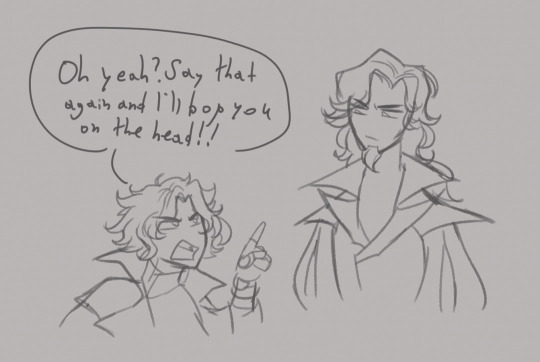
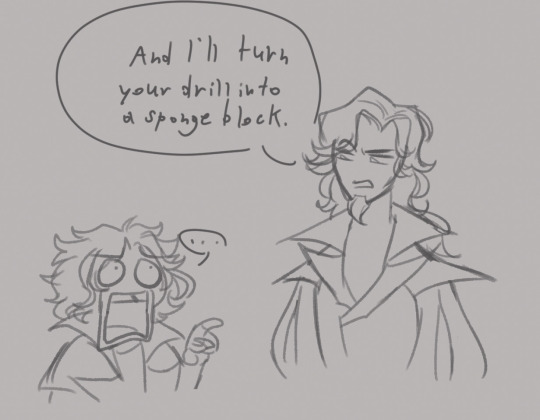
Robot voice: when words collide
(Aka my two comfort characters interacting)
#my art#mcsm#romeo mcsm#venture#venture overwatch#two vastly different characters being my comfort characters is so funny to me#what did he say to them? who knows
41 notes
·
View notes
Text
oh god wait. so if the episodes are "days" to the puppets, and traditionally, new episodes air once per week... then are the puppets only ever awake for one day per week? if that, cause wouldn't episodes only be about an hour long, probs less? so they're awake for however long it takes to film one episode, and then they sleep until the next.
and if Wally doesn't sleep...
#h. hold on a second hold. i need a minute hold on-#is wally awake and alone in the dark for a week at a time#waiting for his next chance to see his friends. to see anyone at all other than Home#how does it feel to him when he goes an episode - maybe multiple without seeing certain neighbors#bc it was implied on the website that some episodes don't have every character interact with wally during his shenanigans#oh fuck and if the show Ended... and he continued on... how many years has he been in the empty dark with only creaks for company#sobs loudly i cant do this-#welcome home#welcome home puppet show#i really hope they get to be awake each 'day'#i put it in quotes bc wasnt it also implied that their days are vastly different from ours#but they probably arent. theyre probably sleeping for a full week at a time#clawing at the walls over this im so emotional#do you think wally like... goes to their houses to visit them while they sleep#hm now im remembering that barnaby and wally sleepover piece clown drew#and im seeing it in an Entirely new and Vastly More Sad light
79 notes
·
View notes
Text
part 1 | ao3
shattered on the cliff’s edge, trapped by the tides
— a steddie ghost story —
part 2 / 7
Soaked through by the icy water and the howling winds, and weighted down by shock and fright, Steve’s legs may as well have been made of lead as he, slowly, with a racing heart, accepts his fate and enters the lighthouse.
He flinches, hard, when the door falls shut behind him, as if pushed by an invisible force, and he flinches again when a wave crashes violently. It’s almost as if the lighthouse is shaking with the impact, but maybe that’s just him.
“Okay,” he breathes, whispering because he doesn’t dare to speak any louder, lest the unending darkness might be disturbed — and something tells him that it wouldn’t take all that kindly to that. “Okay.” Once more, with feeling.
Before he can move and find an oil lamp or even just a candle to bring some light into this place, something thumps from somewhere up the stairs he cannot see.
He knows that, just like ancient manors, lighthouses have a life of their own, knows they’re prone to moving and moaning along with the tides, with the wind and the water — but that was not the settling of wood or metal. That was something else.
“Hello?” he calls with a trembling voice, closing his eyes at the echoes of his own voice travelling up and down the tower he is being made to call home for the foreseeable future. “Is— Is anyone there? I’m… Well, I’m Steve.”
Images fill the space behind his eyes, horrible visions of the old keepers luring him here to murder him, out of sea madness or cannibalistic urges, or just to have a bit of entertainment out here, just for a while. Other images, then, of ghosts coming to haunt him, to drive him to the brink of madness, to the railing all the way up on the tower, and watch his descent into—
Another thump. The sound of a door opening, the wood groaning, the hinges creaking, everything insists the lighthouse protesting its new inhabitant.
And then, through the pitch black darkness, a whisper. Travelling down towards him, growing louder as it comes closer and closer and—
Steve takes a step back, his breath coming in shallow rapidity as he reaches for the handle and finding it unmoving.
Run, the whisper says, sounding more like an inhale than anything else — and is the air getting thinner? Run.
Another wave crashes into the lighthouse.
Run.
The whispering voice is in his head now, loud for all of its tonelessness.
Run!
Steve stumbles backwards, his body too frozen with cold and fear to catch his fall. His body collides with the wall and he slides down, covering his ears with his hands to keep out the noise, to keep out the world as he tries in vain for the fear to subside.
“I’m sorry,” he says, hiding behind his knees like a little boy, scared of his father’s raised hands and his brothers' gloating. “I’m sorry, I mean no harm, I’m just— I’m here to fix the light. I’m here to make sure it’s— everything’s, everything’s fine. I don’t mean to disturb, I’m sorry. I’m Steve. I’m sorry.”
Everything stills then — or maybe it’s the cotton in his ears and the staccato of his heart that drown out everything else and remind him that he’s painfully, desperately alive. And mortal.
But the whispering stops, and so does the groaning up ahead, and silence falls. An unnatural silence, not even broken by the ocean waves outside.
It’s like the lighthouse has stilled to listen to him.
It’s something Robin told him once (or rather, debated at him while he was letting her rant wash over him in a whiff of fondness for his best friend in the whole wide world):
“Ghosts don’t know your intentions, right? So it’s only fair to communicate with them. It’s you breaking into their house, after all. Well, unless they’re haunting your house, but even then it’s fair to assume they have been there all along and you either deserve the haunting and had it coming, or you’re just the poor lad caught in the crossfires. Either way, worth a try, right? If even those still alive assume the worst, I would think an eternity spent in the aether is unlikely to be beneficial to your judgement of character.”
Steve had waved it off then — or, in his case, smile patiently and waited for her to answer his initial question from half an hour ago before she went on a tangent on aether and ghosts and the supernatural; she’d been spending too much time in the library.
“You learn a thing or two about haunted houses, growing up in a family such as mine,” he’d said, and then, “Dinner?”
A pang splits him down the middle, regret and uncertainty tearing at him concerning Robin’s wheareabouts and her safety. She must be safe. She must be!
“They say you don’t like— you, uh, strangers. The locals said you don’t like when people come here, so I’m sorry, but… I’m sorry. I have to fix the light. I’m Steve.”
It’s madness, it must be. Early onset, although his father would have a thing or two to say about that, would claim it had always lived in him, would claim the way he looks at men is proof of that and reason enough to have him hanging in the streets.
It wasn’t madness back then, Steve knows, vehemently, desperately knows. But this? Talking to a lighthouse, speaking into the darkness like it’s sentient even just a minute after he first set foot into it? It must be. He’s never been superstitious, has never been prone to ghost stories or supernatural appearances like Robin.
But something about this place, something about the way it has been haunting his dreams, something about Old John capsizing is enough to make even the calmest man lose his wits.
Something tells Steve that talking with the darkness is the right thing to do, if only for his own comfort.
He looks up, his head thumping against the brick wall behind him, as steps approach. They still, right in front of him, and he’s staring into nothingness, almost expecting to make out a shape. Expecting for the next breath to be his last.
Expecting… something.
But nothing happens, and the sound of the ocean returns. The darkness seems less impenetrable as a sliver of light falls in through a side light up above.
“Thank you,” he says, as stupidly as it is soundless, his voice buried beneath fear and dread.
Miraculously, the darkness seems to fade a little more.
Enough, eventually, for Steve to get up and dust off his trousers in an attempt to look presentable, or to shake off the residue of his fright — if only it was merely residue.
Now that the darkness has lightened, he keeps his eyes fixed to the spot where he feels like he can make out a shape in the dust. Maybe it’s just his mind playing tricks on him, though, maybe it’s just the expectation of finding a spectre that makes one appear.
Madness, he reiterates. But something about it doesn’t feel right. He doesn’t feel mad. And the steps never receded. If they were not an illusion, something created to steal the grounds from beneath his feet, playing with his senses to warp his perception of reality and the truth, then something — someone, quite possibly — is still standing right in front of him.
He looks on even long past the point of impolite staring, searching the dust for a shape that only appears in his periphery when he moves his eyes.
It feels rather undeniable, though, that someone is watching him.
“Hello,” he says at last, having regained some of his voice and footing. His hands clench by his sides, though, his body revolting against speaking with an apparent ghost.
The darkness doesn’t answer, and neither does the dust. But with the memory of urgent whispers still on the forefront of his mind, Steve is almost grateful for it as he carefully reaches for his bags and stars to move so slowly that it might almost be a mockery of the situation if his legs weren’t so shaky.
The weight of an invisible gaze rests on his shoulders and settles in the bones of his neck. It takes everything in him not to rub at it — he has no idea what the darkness would take offence to, and he already feels incredibly lucky to have made it this far with his life still intact and only his sanity and his pride having taken a crack along the way.
He thinks of Old John again, thinks of Good luck, kid. He almost asks the darkness about him, but he bites his tongue just in time. The stairs are steep and if he fell, given an invisible push, chances are he wouldn’t remain as alive as he is right now.
So he swallows and feels his way along the wall up the stairs. When he finds an oil lamp, he reaches for the matches in his bags — blessedly dry — and lights it.
It’s almost blinding, the shine of the flame that sets to illuminate the way, but Steve feels his gaze drawn to the foot of the stairs where the spectre is still framed by the door. Still appearing to look at Steve.
Stalemate is one thing to call it, maybe, this tension in the air, the weight of their gazes accompanied by the stumbling of Steve’s heart and the trembling of his hands.
Steve swallows and continues with his ascent of the winding stairs, never once losing the feeling in his neck. He finds more lamps along the wall and lights them until they lead him to a set of chambers that in any other lighthouse would have been down at the bottom or even in another building altogether, leaving room in a large house or a tiny hut for the keepers to reside in. But none of that is possible out here, in the middle of the sea, towering on top of cliffs that already make it nary impossible to get here.
The lighthouse is prone to flooding if the wind shifts or the ocean remains ruthless in a storm, so everything needs to be located above the threat of sea level.
He finds two bedchambers, the beds unmade, a richly stocked pantry that will last him several months if he keeps it locked away from wet air, and an almost inviting kitchen. A burnt smell wafts from the oven, grown stale over time but a certain bite has never quite managed to air out, and when he takes a look, he finds what was supposed to be bread still in there. A coat hangs on a rack, another is hung over the back of the chair, and another stool has been thrown over.
It looks for all intents and purposes like someone was just here. Like someone is still here.
What happened to the old keepers? — That does not concern you.
A shiver runs through him and he tries not to succumb to the terror that seems to lurk inside these walls as he starts a fire in the hearth. He is exhausted, adrenaline rushing from his body and leaving behind only apathetic tiredness and a longing for rest. He doesn’t even remember the light, his head filled with fog and exhaustion.
Once the fire is going and he is sure there is enough coal for it to last all night and keep him from freezing to an early death, Steve falls into bed without dinner. He only has enough strength not to retreat into a dead man’s unmade bed, instead finding new bedding and linen to make it his own.
He doesn’t sleep on that first night, but he falls into a haze thick enough to be unable to move as the whispers return, knocking and hammering along the walls almost rhythmically, as if waiting for a signal.
There is no time, they say, though he cannot be sure the next morning if he dreamed that or if he really heard it echoing along the walls.
Run. Leave. There is no time.
Tick.
Tick.
Tick.
And the night remains dark.
tagging: @klausinamarink @steviesummer @auroraplume @dragonmama76
#steddie#steddie fanfic#steddie fic#steve harrington#eddie munson#stranger things fic#stranger things#dio words#spooky lighthouse au#if i tell y'all i am writing these things on my phone within the last hours of the day... :p#i have never done anything spooky so this is my lame attempt at eerie atmosphere i hope i succeeded i hope it doesn't suck#steve will be more in character soon but for now he's stressed and scared and haunted hope that helps#ao3 will take a while to update sorry#i feel like this one's vastly different from part 1 in tone and pace but i'm trying not to obsess over that as i still regain my words#tried to keep this one shorter than yesterday’s hence the rather abrupt ending sorry bebés
37 notes
·
View notes